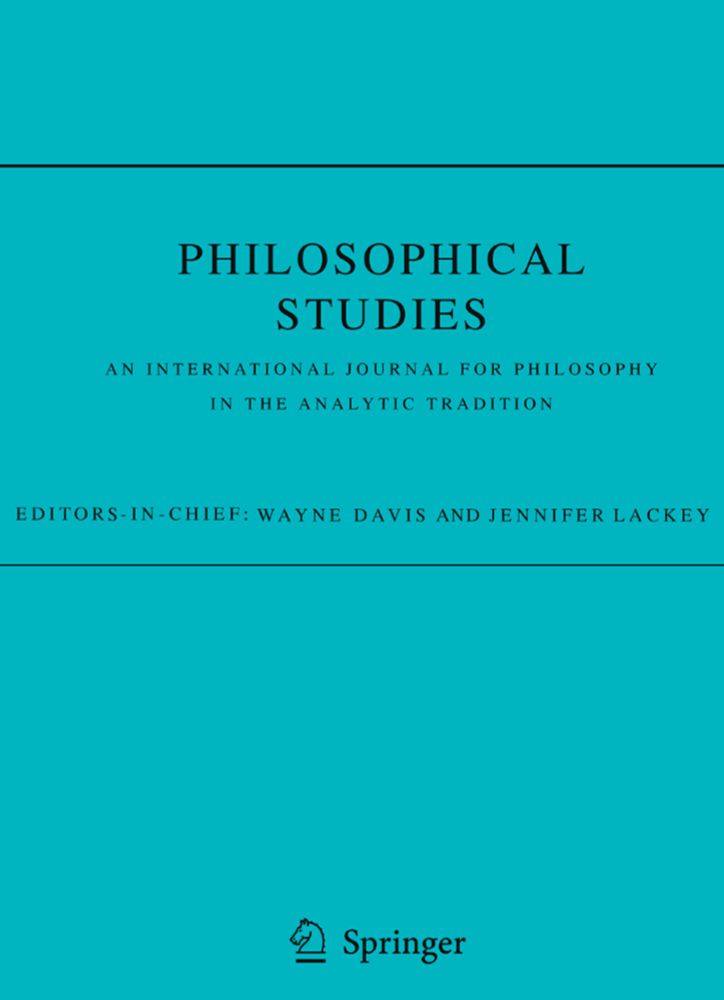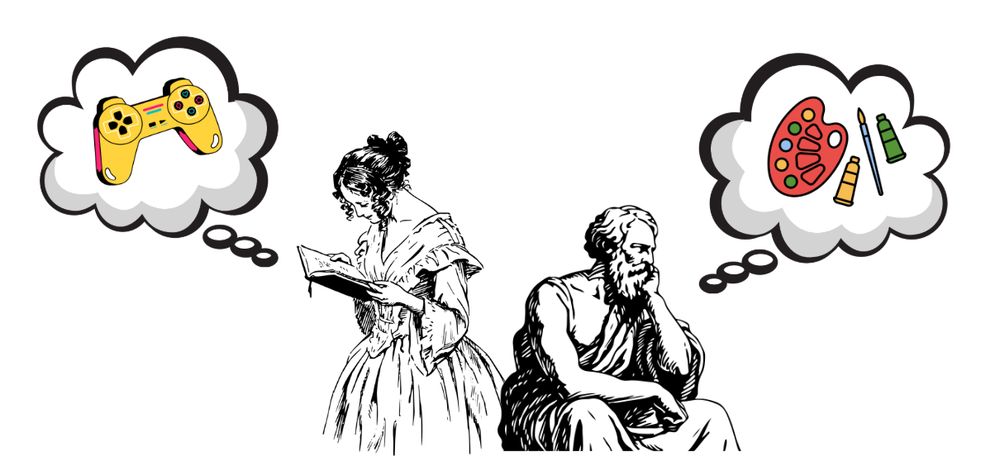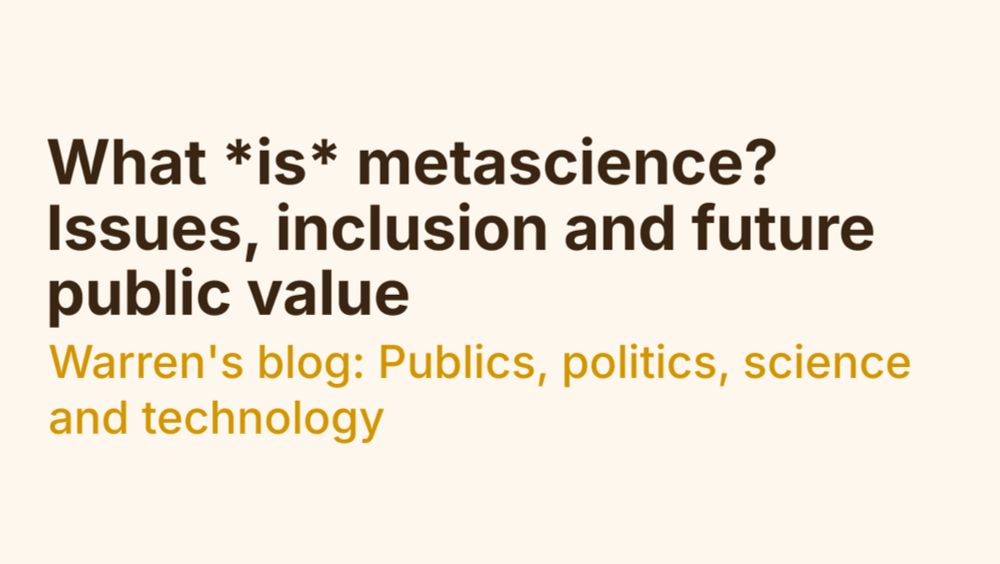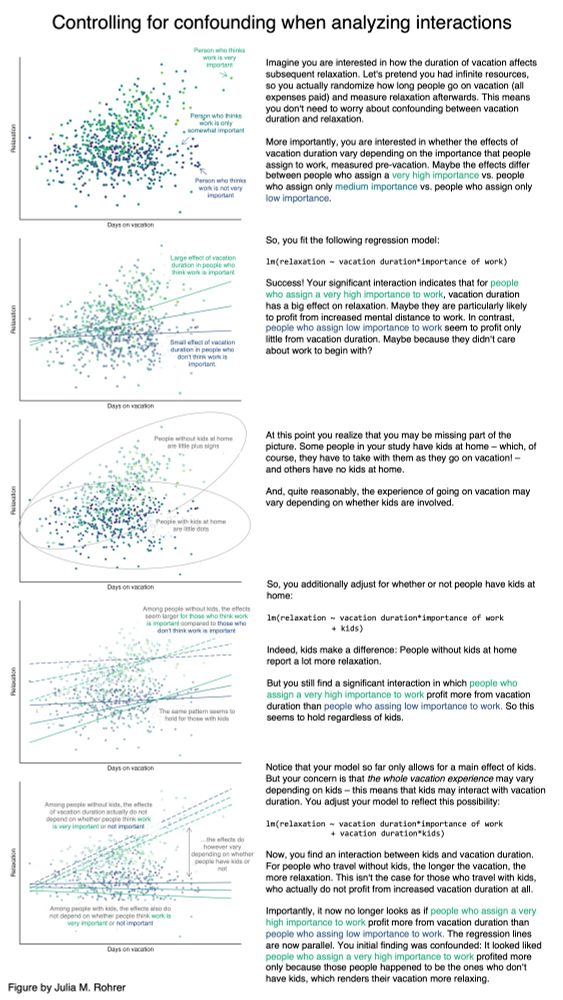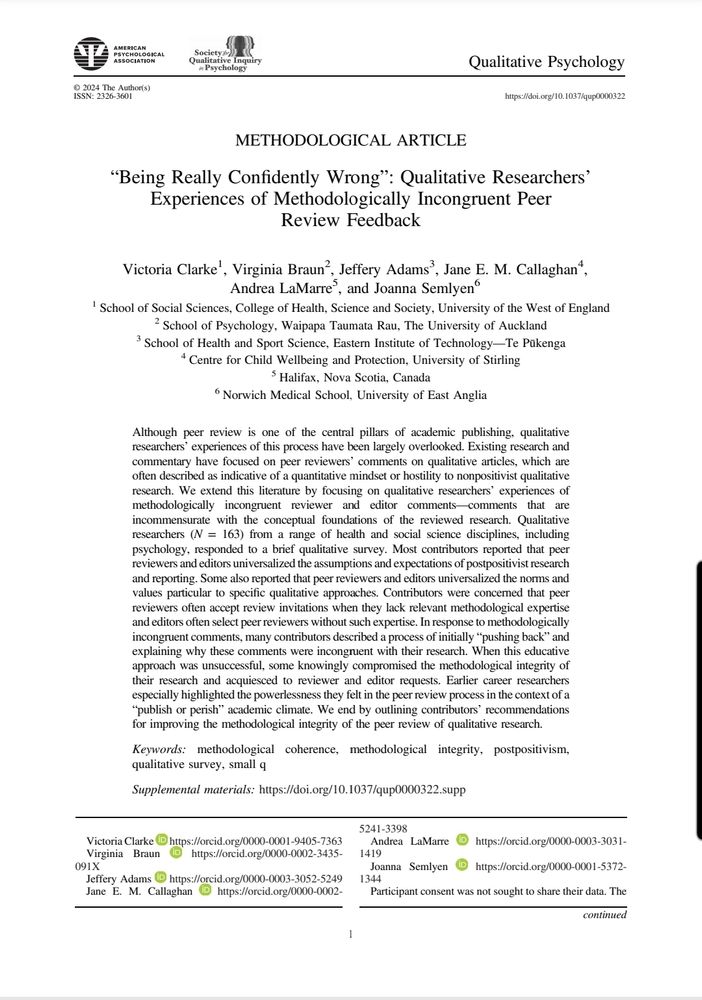Freek Oude Maatman
@freekoudemaatman.bsky.social
180 followers
260 following
27 posts
Theoretical(ly) Psychologist, Philpsy/Philsci |Joint PhD student @University of Groningen @Radboud University | Theory evaluation | Psychopathology | Complexity | he/him
Posts
Media
Videos
Starter Packs
Pinned
PsyArXivBot
@psyarxivbot.bsky.social
· Jan 23
Reposted by Freek Oude Maatman
Reposted by Freek Oude Maatman
Reposted by Freek Oude Maatman
Reposted by Freek Oude Maatman
Berna Devezer
@devezer.bsky.social
· Aug 20
Reposted by Freek Oude Maatman
Lucas Battich
@lucasbattich.bsky.social
· Jul 28

Explaining joint attention: Between epistemic justification and psychological processing
The ability to engage in joint attention, where two individuals attend to the same object or event together, provides an evidential basis for coordinated behaviors and interactions. To play this ro...
www.tandfonline.com
Reposted by Freek Oude Maatman
Reposted by Freek Oude Maatman
Markus Ilkka Eronen
@mieronen.bsky.social
· Jul 12

(PDF) On worms, mirror neurons and explaining human behavior
PDF | A key challenge for psychological theorizing is: At what level(s) should we look for the best explanations and predictions of human behavior? The... | Find, read and cite all the research you ne...
www.researchgate.net
Reposted by Freek Oude Maatman
Reposted by Freek Oude Maatman
Sajedeh Rasti
@sajedehra.bsky.social
· Jul 3

A systemic approach to better coordination in science - Nature Human Behaviour
Although individualism and isolated work remain common in academia, coordination offers substantial benefits. This Comment calls on researchers, funders, policymakers, journals and universities to cre...
doi.org
Reposted by Freek Oude Maatman
Fiona Fidler
@fidlerfm.bsky.social
· Jun 13
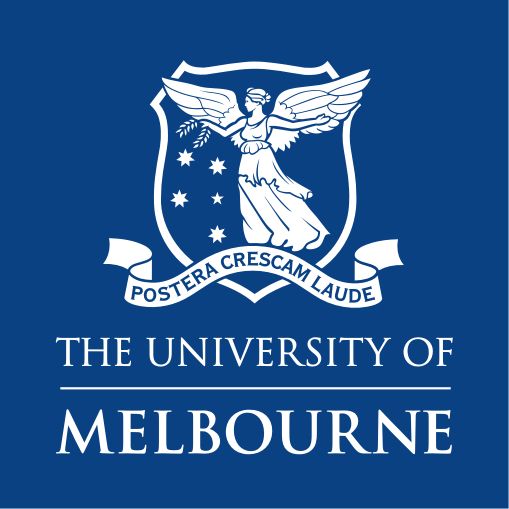
PhD Opportunity in Wider Societal Value of Research and Consequences of its Assessment: A multi-country and multi-method study (MultiSocVal) : Find an Expert : The University of Melbourne
<p> The overarching project is funded by a German Volkswagen Foundation Grant. It brings together international collaborators from four countries – University of Melbourne, Humboldt University, Stellenbosch University, SWPS University, and from a range of disciplines including public policy, sociology, data science, political science, applied linguistics, philosophy and science and technology studies. </p> <p> The PhD candidate will be supported by an overarching research team, including academics, postdocs, research associates and research assistants, spread across the four countries. </p> <p> The overall goals of the group are described below, although there is considerable scope for the PhD candidatee to focus their thesis on an aspect of this work that interests them. </p> <p> Many governments are showing a political commitment to research impact in their respective environments by investing in research evaluation initiatives at different scales. Often the initiatives are characterised by pragmatism, with little attention to underlying value judgements. This creates an urgent need for comparative work with a strong theoretical and empirical basis to study the effects of national evaluation initiatives around impact and societal value. The overall project will address this need through a multi-country and multi-method study of research evaluation initiatives in Germany, Australia, the United Kingdom, Poland and South Africa. Bringing together an international and interdisciplinary team, the project seeks to: </p> <p> (1) produce a comprehensive cross-national and cross-disciplinary overview of research systems with regard to scientific and societal value; </p> <p> (2) investigate what is considered worthwhile research within and between countries; </p> <p> (3) compare the effects of different research evaluation initiatives around impact on research practice in different countries; </p> <p> (4) develop an integrated conceptual framework of scientific and societal value to improve science policy and science practice; and </p> <p> (5) advance stakeholders’ understanding of the effects of research impact assessment for better future evaluation. </p> <p> <strong>About you</strong> </p> <p> We are looking for a candidate with a strong academic background in a relevant discipline such as public policy, sociology, political science, science and technology studies, or a related field. The candidate will be intellectually curious and motivated by critical questions about the role of research in society. Ideally, the candidate will bring an interest in the changing landscape of research governance, including how ideas of value, worth, and impact are shaped and operationalised across national science systems. </p> <p> We welcome applicants with experience in qualitative, quantitative, or mixed-methods research. An enthusiasm for learning new methods – including bibliometric or computational text analysis, survey design, or innovative qualitative analysis – will be an advantage. The candidate will thrive in interdisciplinary and collaborative environments and be keen to contribute to an international research team spanning multiple countries and disciplinary traditions. Strong written and verbal communication skills, along with the ability to work independently and manage a sustained research project, are essential. </p> <p> This project offers considerable scope for the PhD candidate to shape their own research focus within the broader program, and would suit someone interested in contributing to both theoretical and practical understandings of how research is evaluated and governed in contemporary societies. </p> <p> <strong>Eligibility</strong> </p> <p> Domestic and International applicants may apply. You must meet the entry requirements for the <a href="https://handbook.unimelb.edu.au/courses/dr-philart">Doctor of Philosophy – Arts at the University of Melbourne (link attached)</a> including English language requirements and demonstrate excellent capacity and potential for research. </p> <p> As the successful candidate, You will demonstrae: </p> <ul> <li>An academic background in the field of sociology (of culture/science or related area), STS, library and information science, or public policy/research governance </li> <li>A relevant undergraduate and/or postgraduate degree with an average that equivalent to a H1 (80%) at the University of Melbourne, including H1 results in the Honours or Master’s thesis component; and </li> <li>Experience with qualitative analysis or quantitative analysis in the above fields </li> <li>The ability to write research reports or other publications to a publishable standard (even if not published to date) </li> <li>capability to manage projects effectively, meet deadlines and achieve outcomes within a specified timeframes. </li> </ul> <p> <strong>How to submit an expression of interest</strong> </p> <p> Please submit your expression of interest (EOI) via the ‘Submit Expression of Interest’ button by 15 July 2025. </p> <p> Your EOI must include: </p> <ul> <li>A short description of how the project aligns with your interest and experience, an overview of how your might approach the project goals, and an outline of three relevant references from the literature with a description of how they relate to the project </li> <li>A CV that highlights your relevant academic achievements and any relevant professional experience including the names of two academic referees. </li> <li>Higher education academic transcripts that give detailed information of the individual marks received in your university-level qualifications to date </li> <li>An example of your written academic work (e.g. Honours or masters thesis or peer-reviewed journal article) </li> </ul> <p> For more information about our PhD program and application process, please visit <a href="https://arts.unimelb.edu.au/study/graduate-research"><strong>this website</strong></a>. </p>
findanexpert.unimelb.edu.au
Reposted by Freek Oude Maatman
Reposted by Freek Oude Maatman
Reposted by Freek Oude Maatman
Eric Turkheimer
@ent3c.bsky.social
· Jun 4
Reposted by Freek Oude Maatman
Reposted by Freek Oude Maatman



![4-panel comic. (1) [Person 1 with ponytail flanked by person with short hair and another person speaking into microphone at podium] PERSON 1: In the early 2010s, researchers found that many major scientific results couldn’t be reproduced. (2) PERSON 1: Over a decade into the replication crisis, we wanted to see if today’s studies have become more robust. (3) PERSON 1: Unfortunately, our replication analysis has found exactly the same problems that those 2010s researchers did. (4) [newspaper with image of speakers from previous panels] Headline: Replication Crisis Solved](https://cdn.bsky.app/img/feed_thumbnail/plain/did:plc:cz73r7iyiqn26upot4jtjdhk/bafkreibwuu57ullc7vacjyno6c5z3gtyakkg2qub6cn3dbbjdpn2kaowmi@jpeg)
